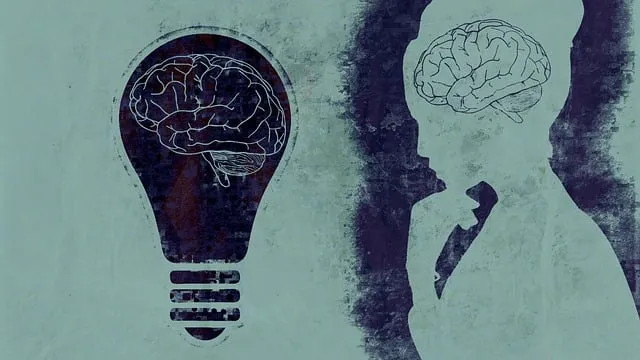The Kaiser Permanente mental health facility in Longmont employs a comprehensive crisis intervention strategy focusing on immediate support, stabilization, and long-term recovery planning. Using evidence-based methods like Social Skills Training, they equip patients with healthier coping mechanisms, including mindfulness, relaxation techniques, and cognitive reframing. Structured risk management plans tailored to individual needs ensure client safety and promote recovery. Through rigorous staff training, continuous education, and public awareness campaigns, the facility fosters open dialogue about mental health within the community, ultimately enhancing broader emotional well-being.
“Discover effective crisis intervention strategies at the Kaiser Permanente Mental Health Facility in Longmont. This comprehensive guide explores how healthcare professionals can navigate challenging situations, offering a safe and supportive environment. We delve into the key components that underpin successful interventions, providing practical tips for real-world application. Through case studies from the Longmont facility, learn from best practices proven to make a positive impact on patient outcomes.”
- Understanding Crisis Intervention at Kaiser Permanente Mental Health Facility Longmont
- Key Components of Effective Crisis Intervention Strategies
- Practical Implementation Tips for Healthcare Professionals
- Case Studies and Best Practices from the Kaiser Permanente Mental Health Facility Longmont
Understanding Crisis Intervention at Kaiser Permanente Mental Health Facility Longmont

At Kaiser Permanente Mental Health Facility Longmont, crisis intervention strategies are tailored to address acute mental health crises effectively. The facility recognizes that a crisis is a momentary intensification of symptoms or distressing emotions that can significantly impact an individual’s ability to function. Therefore, their approach focuses on immediate support and stabilization, followed by comprehensive assessment and planning for long-term recovery.
The team at Kaiser Permanente Mental Health Facility Longmont employs various evidence-based methods, including Social Skills Training, to help patients navigate challenging situations with healthier coping mechanisms. Additionally, they encourage the development of Self-Care Routines for Better Mental Health, empowering individuals to proactively manage their mental well-being. By integrating Self-Care Practices into daily life, patients can better regulate emotions, improve resilience, and reduce the risk of future crises.
Key Components of Effective Crisis Intervention Strategies

Effective crisis intervention strategies are a vital tool for mental health professionals, such as those at the Kaiser Permanente mental health facility in Longmont. These strategies focus on several key components to ensure positive outcomes for individuals facing severe emotional distress. Firstly, stress management techniques empower individuals to cope with overwhelming situations. Through teaching mindfulness, relaxation exercises, and cognitive reframing, professionals enable clients to regulate their responses to crisis triggers. This not only helps in the immediate situation but also fosters resilience building, a crucial aspect of long-term mental well-being.
Additionally, risk management planning is an essential element. Professionals must assess and mitigate potential risks associated with the crisis, including self-harm or suicide ideation. By implementing structured plans tailored to each individual’s needs, the Kaiser Permanente facility ensures that their team of mental health professionals can provide timely and effective interventions. This proactive approach, combined with continuous risk management planning, demonstrates a commitment to client safety and recovery.
Practical Implementation Tips for Healthcare Professionals

Implementing crisis intervention strategies effectively requires healthcare professionals to be well-prepared and equipped with practical skills. At Kaiser Permanente mental health facility in Longmont, for instance, staff undergo rigorous training in emergency response protocols tailored to various psychiatric crises. This includes mastering de-escalation techniques to calm distressed individuals, as emotional intelligence plays a pivotal role in managing high-stress situations.
To enhance their capabilities, professionals are encouraged to participate in continuous education programs focusing on advanced crisis management and public awareness campaigns around mental wellness. These initiatives not only improve individual responses but also contribute to fostering a culture of open dialogue about mental health, ultimately benefiting the broader community’s emotional well-being.
Case Studies and Best Practices from the Kaiser Permanente Mental Health Facility Longmont

The Kaiser Permanente mental health facility in Longmont has emerged as a beacon of best practices for crisis intervention strategies. Through its innovative approach to mental healthcare, the facility has developed unique case studies that highlight effective interventions tailored to diverse patient needs. One standout initiative is their Mental Health Education Programs Design, which focuses on empowering individuals with knowledge and skills to manage stress and overcome challenges. This program incorporates Mind Over Matter Principles, emphasizing the power of positive thinking and self-care techniques in building resilience.
The facility’s success lies not only in these structured programs but also in its holistic understanding of mental health support. By fostering an environment that encourages open dialogue and provides accessible resources, Kaiser Permanente Longmont has demonstrated a commitment to fostering community resilience. Their strategies have proven invaluable, offering insights into effective crisis intervention methods that can be adapted and implemented on a larger scale, potentially transforming how mental healthcare is delivered in the future.
The article has explored the essential role of crisis intervention strategies in healthcare, particularly at the Kaiser Permanente Mental Health Facility in Longmont. By understanding the unique challenges faced during crises and leveraging key components such as active listening and de-escalation techniques, professionals can provide effective support. Practical implementation tips and case studies from Longmont highlight the facility’s commitment to fostering a culture of care and resilience. These insights underscore the significance of continuous training and collaboration in enhancing crisis intervention services, ultimately contributing to improved patient outcomes and well-being.






